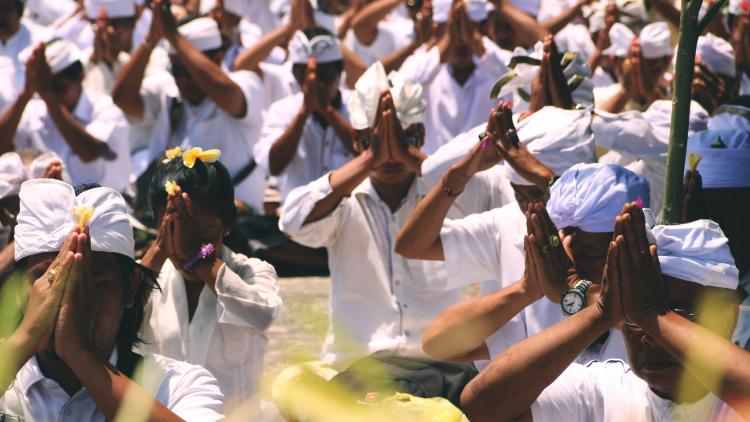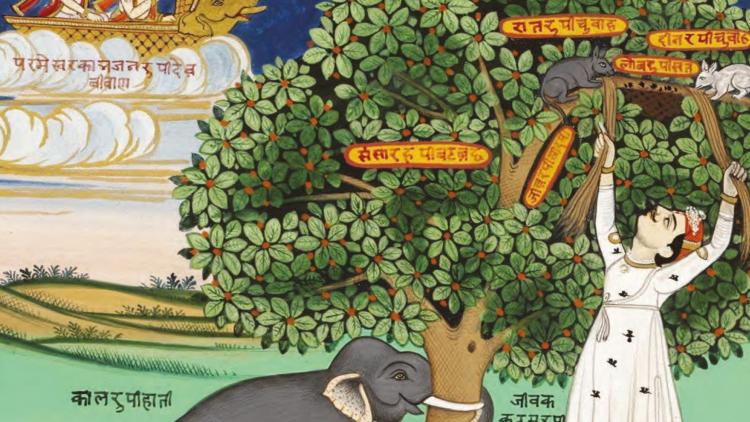Dr Paul Giladi

Key information

- Roles
- School of History, Religions and Philosophies Recruitment, Admissions and Marketing Convenor School of History, Religions and Philosophies BA World Philosophies Programme Convenor College of Humanities Chair, Critical Pedagogy Group
- Qualifications
-
Senior Fellow, Advance HE (2023)
PGCLTHE (2022)
PhD in Philosophy (2013, University of Sheffield)
MPhil.Stud in Philosophy (2011, University of London – King’s College London)
BA (Hons) Philosophy (2008, University of London – King’s College London)
- Building
- SOAS Main Building
- Office
- 333
- Email address
- pg30@soas.ac.uk
Biography
Dr Paul Giladi is currently Reader in Philosophy in the School of History, Religions and Philosophies.
He started at SOAS on 4 September 2023. Before joining SOAS, Paul was at Manchester Met from 1 June 2018 until 1 September 2023, where he was the Director of Undergraduate Studies for Philosophy, the Departmental lead for Equity, Diversity, and Inclusivity (EDI), and the convenor of the History, Politics and Philosophy Critical Pedagogy Group. Paul co-founded in November 2021 the ‘Naturalism, Modernity, Civilization, and International Research Network’ – now jointly homed in SOAS, Padova University, and Potsdam University –, which he continues to co-direct.
Paul has published extensively on German Idealism, American Pragmatism, philosophical naturalism, critical social theory, critical social epistemology, and critical social ontology. He is one of the co-creators of the world’s first Decolonising Philosophy Curriculum Toolkit and Handbook. Paul was part of the Advisory Group that produced the 2025 QAA subject benchmark statement for Philosophy.
Research interests
Areas of Specialisation:
- Post-Kantian Philosophy (particularly Fichte and Hegel)
- Critical Social Theories (particularly the Frankfurt School and decoloniality)
- Critical Social Epistemologies
- Metaphysics
- Pragmatism
Areas of Competence:
- Critical Philosophy of Race
- Gender Studies
- Philosophy of Education
- Philosophy of the City
- Philosophy of Language
- Philosophy of Mind
- Sexuality Studies
Paul’s approach to philosophy is unique: he combines perspectives from Hegel, pragmatism, critical social theories, intersectional feminism, and contemporary Anglo-American philosophy. His research crosses multiple philosophical traditions and conceptual schemes that have remained distinct.
One of the motivations in Paul’s research, which forms a positive feedback loop with his critical and relational pedagogic praxis, is to demonstrate how a heterogeneous conceptual framework, particularly one oriented to maximal inclusiveness of those voices rendered subaltern, can yield a more penetrative and more robust analysis of key questions in social philosophy, metaphysics, and philosophy of mind.
Pedagogical Practice
I teach because I view philosophy as a life-affirming, social, progressively transformative, and emancipatory subject. Philosophy is also really fun! I am hugely motivated to pass on my passion for this wonderful discipline to my students, so they can (i) feel very much at home in research environments, (ii) fully realise their own capabilities as critical, rigorous agents, (iii) sensitively make sense of reality through new and intellectually penetrative vocabularies, (iv) actively combat all forms of oppression, and (v) bring about progressive change in their personal and professional lives.
I have developed an intense but friendly critical pedagogical approach which encourages students, especially those from a range of minoritised backgrounds, to feel symbolically and materially part of a community of researchers and very much at home in university learning environments. I view students right from their first day at university as co-participants in inquiry, rather than as passive learners. Using my own take on research-led teaching, I push my students hard with transformational learning techniques, not only to ensure they are as active and engaged as possible, but also to enable them to have an excellent critical grasp of the philosophical issues in play. Such a pedagogical approach helps students become increasingly confident (but not arrogant), realise their potential, and enter the world of work with an array of immensely attractive employability skills.
In terms of students’ formative work, which is just as important as their summative assessments, I always ask my students to maintain a reflective learning diary over the course of the modules they take under my direction. Reflective learning diaries are a very helpful metacognitive pedagogical resource for their intellectual development as thinkers.
I am deeply passionate about and committed to robust praxes of decolonisation, authentic assessment, and co-creating curriculum content and assessment cultures with students. I tend to diagnose hostility towards co-creation in terms of a deep-seated insecurity that constitutes the last twitches of a desperate attempt to control younger generations students, embodying the dying throes of a failing disciplinary power relation that desperately fights against viewing students as researchers and educators with active stakes in knowledge production, whose lived experiences and discursive literacies make them authoritative epistemic agents. The joy co-creation brings is a joy that is an untapped normative surplus in existing neoliberal environments.
Languages
- Arabic (intermediate)
- English (native)
- French (fluent)
- German (reading)
- Hebrew (intermediate)
- Spanish (intermediate)
Consultancy and advisory roles
- 2024 QAA Subject Benchmark Statement for Philosophy: Advisory Group
L.E.K. Consulting
- Online Learning
- Challenges to Higher Education
Prizes and awards
- Shortlisted for ‘Most Innovative Teacher of the Year’, 2023 Times Higher Education Awards.
- Commendation (€500 award) for ‘The Agent in Pain: Alienation and Discursive Abuse’, The 2019 Robert Papazian Essay Prize.
- University Teaching and Learning Award in 17/18 (University College Dublin).
PhD Supervision
| Name | Title |
|---|---|
| Rumi Dahar |


